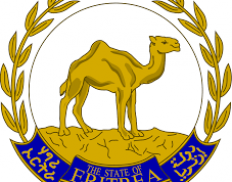Eritrea lies in the Sahelian rainfall zone of North-eastern Africa. It is periodically subject to severe droughts which result in extreme food deficit years. Notwithstanding, agriculture is the backbone of the Eritrean economy with more than 70% of its population relying on it.
Agricultural research in Eritrea started during the Italian colonial period. Nevertheless, the instability of Eritrea’s history due to the succession of many governments and occupation lead to no significant progress up to Eritrea independence in 1993. High priority has been given by the new government to strengthening the national agricultural research and extension services. As a result, public sector agricultural research was established in 1994. At present, there are very few companies involved in technology transfer. No seed companies have been established as yet.
The Eritrean plant breeding programme started in 1995 with the assistance of the international research institutions such as ICARDA, ICRISAT, CIMMYT, CIP and DANIDA. The programme focused on the development of improved varieties of wheat, barley, maize, sorghum and pearl millet and locally adapted farmer varieties for specific agro-climatic zones of the country. It aims to enhance disease resistance, drought tolerance, yield potential and uniformity.
Lack of financial resources to carry out field and laboratory experiments is one of the limiting factors for the success of plant breeding programmes.
Public Institutes

Ministry of Agriculture of Eritrea
Website available in English
The Ministry of Agriculture is responsible for: Maintaining food security through the provision of Extension and Research Services both Livestock and Crops. Quick Economic Recovery through the implementation of the Demand Driven Approach Programme (DDA) and other commodity projects.

National Agricultural Research Institute (NARI)
Website available in English
NARI is one of the three Departments of the Ministry of Agriculture. Its mandate is to conduct research on crops, livestock, horticulture, natural resource management and agricultural engineering and to provide relevant short and long-term training. In general, the research priority varies from crop to crop. However, it is believed that most of the major crops are suffering from biotic and abiotic stresses, and therefore the breeding programs have focused on solving these. Research programs aim to set priorities that are consistent with the importance of both the commodities and the constraints.
Hamelmalo Agricultural College (HAC)
Website available in English
